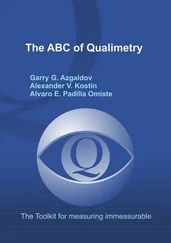“Four beds,” said Violet. “I have sold only four beds. I shall try to sell more tomorrow-once I have got used to the job.”
The eyes that had been focused on Violet swivelled to Phuti Radiphuti.
“Four beds!” he said. “That is very good, Mma! I would have been happy if you had sold two-or even one.”
Violet shrugged. “It is not hard,” she said, and added, “if you have the right skills.”
“Well, you certainly have those skills, Mma,” said Phuti. “Four beds!”
One or two members of the staff looked away as this praise was heaped upon Violet; others smiled, even if their smiles were perhaps slightly fixed. And afterwards, when the sales meeting broke up, Phuti indicated to Violet that she should stay behind in his office.
“That is a very good effort,” he said. “You have made a fine start, Mma.”
“Violet, please,” she corrected him.
“Yes, Violet. A very good effort.”
Violet made a self-deprecatory gesture-a small wave of the hand-to indicate that she thought such feats to be nothing special. Then, looking at her watch, she said, “I must rush now, Rra. I have to be home soon to cook for my sick aunt. I am looking after her, you see, and she likes to have her meals on time.”
“Of course,” said Phuti. “I do not want to keep you, Mma.” He hesitated. “Would you like me to run you home, Mma… Violet? I was going to be leaving now anyway.”
Violet beamed at him. “You're very kind, Mr. Radiphuti.”
“Phuti, please,” said Phuti.
She nodded. “Phuti, then. Yes, that would be very helpful. My poor aunt gets anxious.”
“Oh, I know how it is, Violet. When you're looking after an older relative. They are always worrying, worrying. This thing and then another thing. It can be a very great burden.”
“We do our best,” said Violet modestly, picking up her bag. “It is not always enough, but we do it.”
Phuti locked the shop behind him and they got into his car. Violet sat demurely in the passenger seat, but her fingers wandered discreetly to touch the plush surface of the armrest beside her. And she took in, too, the expensive finish of the instrument panel.
“So you're cooking for your aunt,” said Phuti, as they drove off. “I'm sure that you will be a good cook too.”
Violet basked in the pleasure of the too. Saleslady, lady of fashion, top-flight secretary… and cook. It was a litany of qualifications.
“I like cooking,” she said. “And it is always an extra pleasure to be cooking for somebody else. It doubles the pleasure. Like your furniture gives double comfort.”
Phuti thought this very witty and laughed enthusiastically.
Top-flight secretary, cook… and wit, Violet thought.
“Good cooking makes people happy,” said Phuti, adding, “And it makes them full.”
He glanced away from the road at Violet and she realised that he had made a joke. She laughed loudly, and Phuti permitted himself a smile. This is going to be easier than I thought, Violet said to herself. Men. It was all so easy.
Phuti turned off onto the road that led past the Automotive Trades College. There was an intersection ahead, and beyond it a few craftsmen showed their wares under trees: roughly made chairs, some shapeless beanbags for sitting upon, pots of doubtful shape and usefulness. The traffic was heavy as people made their way home, and Phuti, awaiting his turn to go through the intersection, found himself drawing up alongside a crowded minibus. It was not a sight to attract attention in any way; minibuses were everywhere, swaying along like overloaded boats, each a small, optimistic business, the pride of its proprietor. He did not look at this one, for there was nothing out of the ordinary to it, except for the fact that it carried, looking out of the window at that particular point, Grace Makutsi, assistant detective, on her way home from the No. 1 Ladies' Detective Agency.
Their eyes did not meet. Mma Makutsi, however, immediately recognised Phuti Radiphuti's car and gave a start. She sat bolt upright, face close to the window, taking in first the car, then Phuti at the wheel, and then, in an awful, heart-stopping moment, the figure of Violet Sephotho, false claimant of eighty per cent, writer of anonymous letters, Jezebel.
CHAPTER ELEVEN. BIG MAN TAFA
A TUESDAY MORNING, thought Mma Ramotswe, is a good day on which to start work on a case. This was largely because of the positioning of Tuesday: Monday was a difficult day for no other reason than that it was Monday the start of another week, with the prospect of another weekend as distant as it ever could be. Wednesday was halfway through the week, and a day on which, for some reason, there always seemed to be rather too much to do. By Thursday one was getting tired, and then on Friday, with the end in sight, one was in no mood to begin anything. That left Tuesday, which it now was; the day on which Mma Ramotswe found herself contemplating afresh the list of names of football players and deciding which of them to investigate first.
She glanced across the room at Mma Makutsi, who was sitting stiffly at her desk, in a way which Mma Ramotswe recognised as her bad-day posture. Mma Makutsi was like that; she could be moody, particularly when there was some problem on the domestic front. Certainly, there was something worrying her, but Mma Ramotswe knew better than to raise it with her at this point. It would come out later in the day, and she would be able to comfort or reassure her. Then the mood would lighten and everything would return to normal. That was what normally happened.
The Molofololo case was difficult not only because of the strange world of football with which it was concerned, but also because of the sheer challenge of looking into the private lives of quite so many men. She would have to delegate, she decided. Mma Makutsi could take on some of the names, Mr. Polopetsi- if things were quiet in the garage-could be allocated a few of the others, and she would do the rest. Now, looking at the list, she picked up a pencil and divided the names. The drivers of the Mercedes-Benzes, each of whom had a tick against his name, were, according to Mr. Polopetsi, unlikely candidates; they could be left to Mr. Polopetsi himself in that case, as he was the least experienced of the three of them. She then divided the remaining names at random between Mma Makutsi and herself.
She had decided that the best approach was to speak directly to the players. Mr. Molofololo's suggestion that she pose as a masseuse was not practical, for a number of reasons. Prominent amongst these was that Mma Ramotswe had no idea of how to perform a massage, and she simply did not fancy pounding and manipulating the limbs of these muscly football players. She might pull the wrong way and make matters worse; she might tickle them inadvertently; anything could happen. No, that was not a good idea; far better to be transparent and to tell the players that she had been asked by Mr. Molofololo to talk to everybody to find out what was going wrong. That had the benefit of being true, but it also gave people the chance to do what they liked to do best-which was to talk. Much as Mma Ramotswe admired Clovis Andersen's The Principles of Private Detection, it had to be said that this was one matter on which she felt she knew better than Mr. Andersen himself. Nowhere in that great book did the author recommend the practice that Mma Ramotswe had found to be the strongest weapon in the private detective's armoury- that of asking people directly about something. That always worked, she found; always. When in doubt, ask somebody; it was as simple as that.
She looked at the list of names and the addresses beside them. She shook her head over the ridiculous football nicknames, smiling, though; men will be boys, she thought, especially when it comes to sporting matters. That was when men forgot their real age and went back to being ten or whenever it was that they were at their happiest. We all have a time, thought Mma Ramotswe- a time when the world was at its most exciting for us. Usually that time is somewhere in childhood, in that faded, half-remembered land that we all once dwelled in; that time of freshness and hope. For me it was… she stopped, and thought of Mochudi and the house she had lived in as a girl. And she saw her father too, the late Obed Ramotswe, with his battered old hat that people laughed at but he loved so much. That was when I was happiest, she thought. Not that she was unhappy now-she was very happy; happy with her business, with her husband, with her tiny white… No, she was unhappy about that, but best not to think about it. Think of football instead and… Her eye moved down the list and came to Big Man Tafa. She would start there because she knew the road where he lived and also because she thought it would be a good idea to start with the goalkeeper. She remembered hearing people talking about him when they came out of the Stadium. Somebody had made a remark about his having been on the wrong side of the goal at the critical moment; not that she would have noticed that herself, but it was clearly obvious enough for somebody to remark on it-somebody who knew what he was talking about, as most people who attended football matches seemed to. There had been a lot of advice given to the players by the crowd; it had been a very well-informed crowd, Mma Ramotswe thought.
Читать дальше











